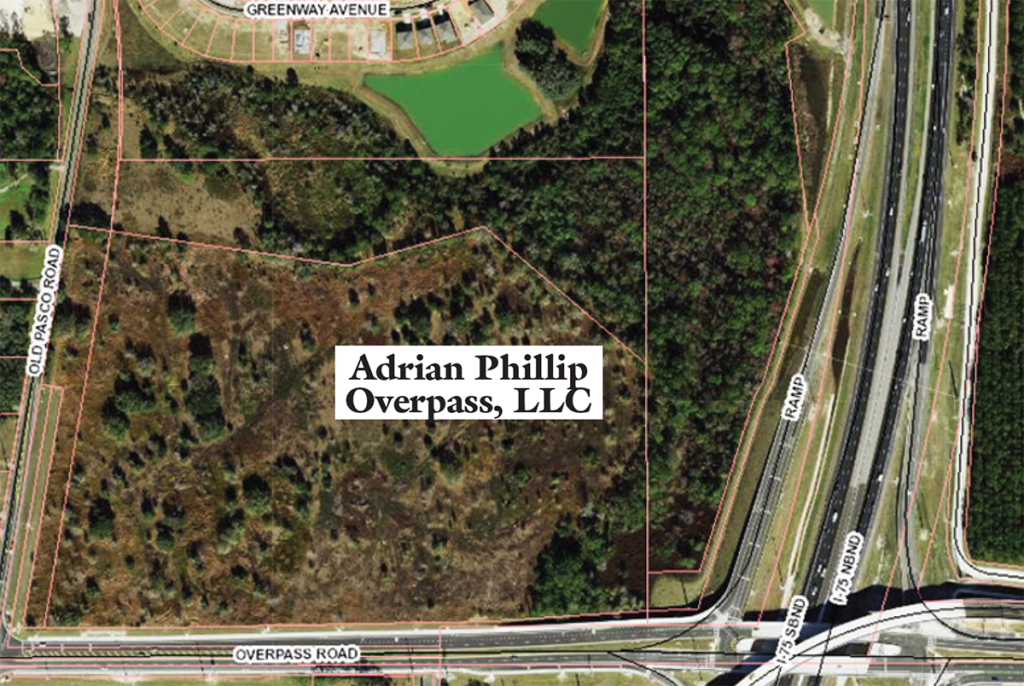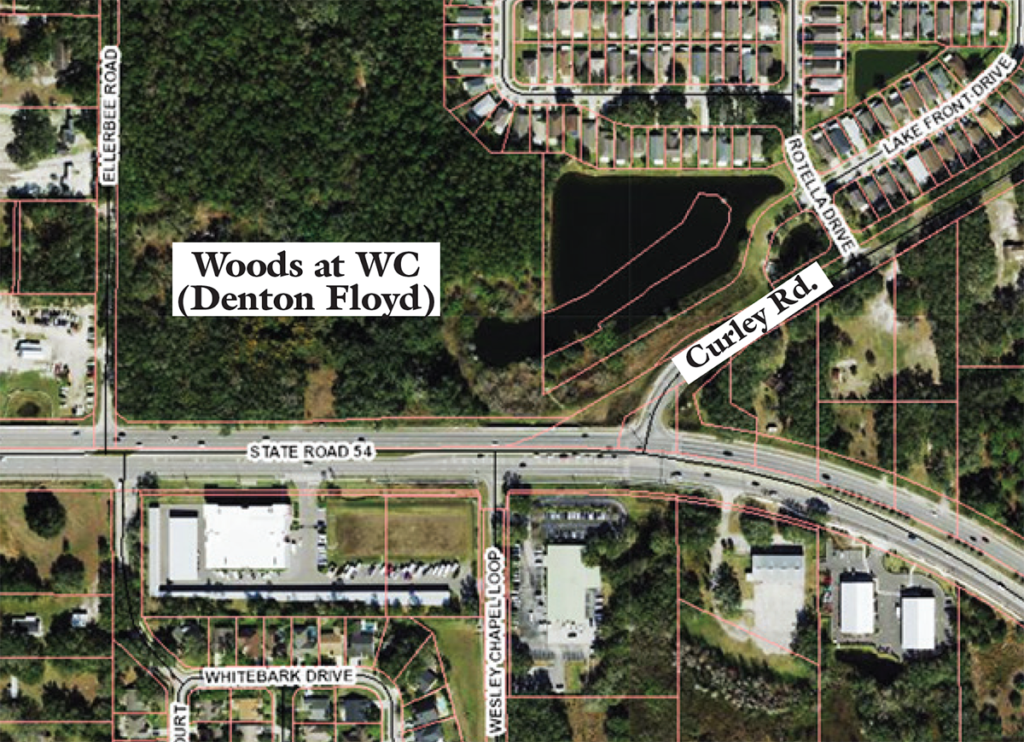Research by Joel Provenzano

District 2 Pasco County Commissioner Seth Weightman says that he and his fellow commissioners aren’t opposed to more “workforce housing” coming to Pasco, he just doesn’t believe the State of Florida’s new “Live Local” law will actually accomplish that goal.
Weightman also notes that after the county held a workshop last month where twelve potential sites for possible “Live Local” multi-family developments (such as apartments) were identified that Pasco’s Board of County Commissioners did not threaten to sue the state legislature over “Live Local,” but did threaten to sue developers attempting to develop workforce housing using the new law — which allows those developers to build workforce housing on job-creating sites zoned for commercial and industrial uses, without having to go through a rezoning. This workforce housing is suggested to be affordable housing for individuals to afford the rents near their places of work in order to “Live Local.”
“The intent of ‘Live Local’ is admirable,” Weightman says. “But, we believe that allowing developers, especially for property owners who are based out of state, to get tax breaks for developing multi-family units on commercial sites is not the way to accomplish that goal.”
Weightman adds that with all of the new residential development already being constructed in Pasco County, especially in booming Wesley Chapel, “We need as many of our potential employment centers as possible to remain as job-creating sites. If we keep building more and more residential units without places in or near the same communities for those residents to work, we’re not helping those lower- and middle-income renters ‘Live Local,’ as it’s supposedly designed to help. (The law) in turn takes away jobs, rather than creating employment opportunities for those who, in fact, Live Local.”
The legislation known as the Live Local Act offers developers tax breaks for approximately 30 years, and allows them to bypass local zoning rules if enough workforce housing (at least 40% of a particular site) is built. The act is meant to create more housing for middle-income renters who make 120% of an area’s median income or less. In Pasco, Weightman says, that means these “lower-income” rental units are intended for people making $70,000 or less per year.
“Those aren’t all low-income renters,” Weightman says. “And, even though the tax break savings given to developers under Live Local are supposed to be passed on to the renters, it seems that these Live Local properties are renting at market rates, so the only ones really benefiting from Live Local are the developers themselves.”
Two Local Sites With Two Different Approaches
Weightman says that two of the twelve Pasco sites where developers have planned to develop rental housing on commercially zoned property are located in Wesley Chapel proper.
The first is known as Adrian Phillip Overpass, LLC, which is located on Old Pasco Rd. at the intersection of Overpass Rd., just west of the new Overpass Rd. exit off I-75 (see map above). The 32.26-acre site currently is zoned commercial, which Weightman says makes sense because of its location near the interstate’s new Exit 282.

“Under Live Local, this particular developer could just develop apartments without a rezoning,” Weightman says, “but they have been in discussions with the county about at least keeping the property a mixed-use site. As long as they’re willing to work with us, there’s no reason for us to sue the developer. The threat of a possible lawsuit could put properties like these in limbo, so we appreciate developers like these who don’t want to force the county into a position of eliminating a planned future employment site.”
Weightman notes, however, that the developers of another Wesley Chapel site have been less willing to work with the county on a mixed-use solution.
The 25.69-acre property known as Woods at Wesley Chapel, is located just west of the intersection of Curley Rd. and S.R. 54. Developer Denton Floyd Real Estate Group is planning to build a 320-unit rental community at the site, which is part of the adjacent Pine Ridge Master Planned Unit Development (MPUD) but is currently zoned for commercial (C1 & C2) uses.
A previous development application that was abandoned for this site was a Lowe’s Home Improvement Warehouse. That plan was abandoned because of the site’s low potential accessibility for the large trucks that would have to enter and exit Lowe’s from S.R. 54 (and other reasons).
Weightman says that although the county staff has attempted to negotiate with Denton Floyd to at least allow some neighborhood commercial, like a medical or other professional office building, “The developer is pretty bullish on using Live Local to develop the entire site as rental apartments with minimal amenities for its residents and predict no real cost savings on rent. This is the type of development that the county believes is worth suing the developer over, which allows the county to challenge the constitutionality of Live Local.”
Not Suing The State
Weightman is quick to point out, however, that unlike what has been written in some published reports, Pasco is not planning to sue the state over Live Local.
Florida Senate President Kathleen Passidomo (R-Naples), who has been called the main architect of the Live Local Act, was quoted in a Dec. 7 FloridaPolitics.com article as saying that she didn’t understand why Pasco commissioners would vote to file a lawsuit looking to strike down the portion of Live Local that requires local governments to open up commercial and industrial areas to residential construction that would take away the need for the developer to go through the rezoning process.
“Why didn’t you call me?,” Passidomo was quoted as saying. “I have a cell phone. Don’t sue me, talk to me. And then sue me if you don’t like it.”
Weightman says Pasco is, in fact, not suing the state, but rather threatening to sue the developers who plan to utilize the law to develop multi-family housing on commercial, industrial and mixed-use sites without going through the rezoning process.
“Pasco has more of these Live Local sites than just about any other county in the state,” Weightman says. “We need employment centers for all of the people who are moving here, and we don’t think we should be forced to give up those employment centers to give tax breaks to out of state developers, especially without actually providing any real low-income housing.”
Weightman says he also fears that other Live Local sites, in addition to the current 12, will likely also pop up in Pasco, especially in our zip codes. “There’s no doubt that these developers are looking at their own pro forma statements, and not at helping low-income people,” he says. “And they definitely want to get into Wesley Chapel.”
Passidomo also was quoted as saying that the Live Local Act could be tweaked during the upcoming State Legislative session, which begins on Jan. 9.




No comment yet, add your voice below!